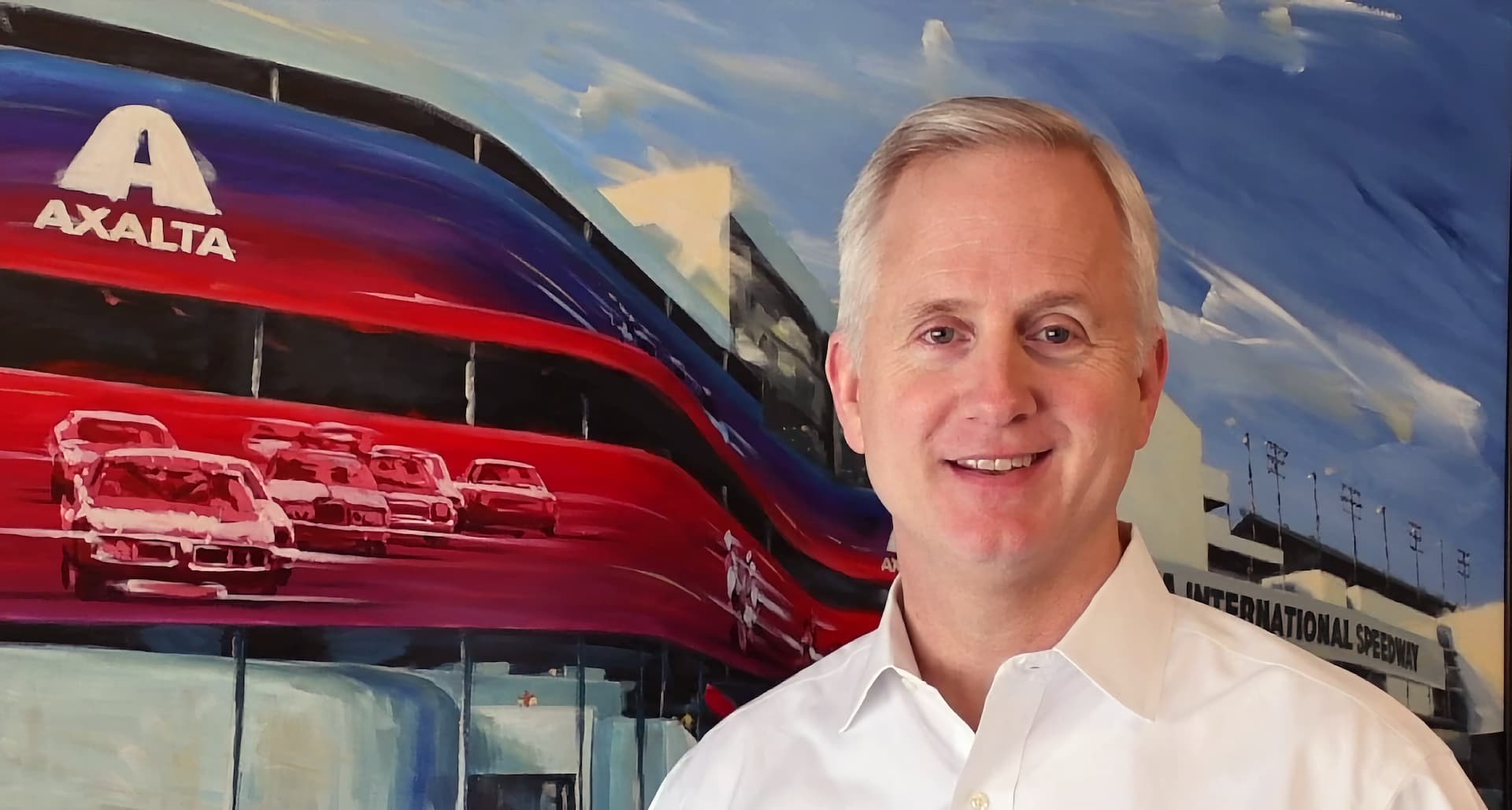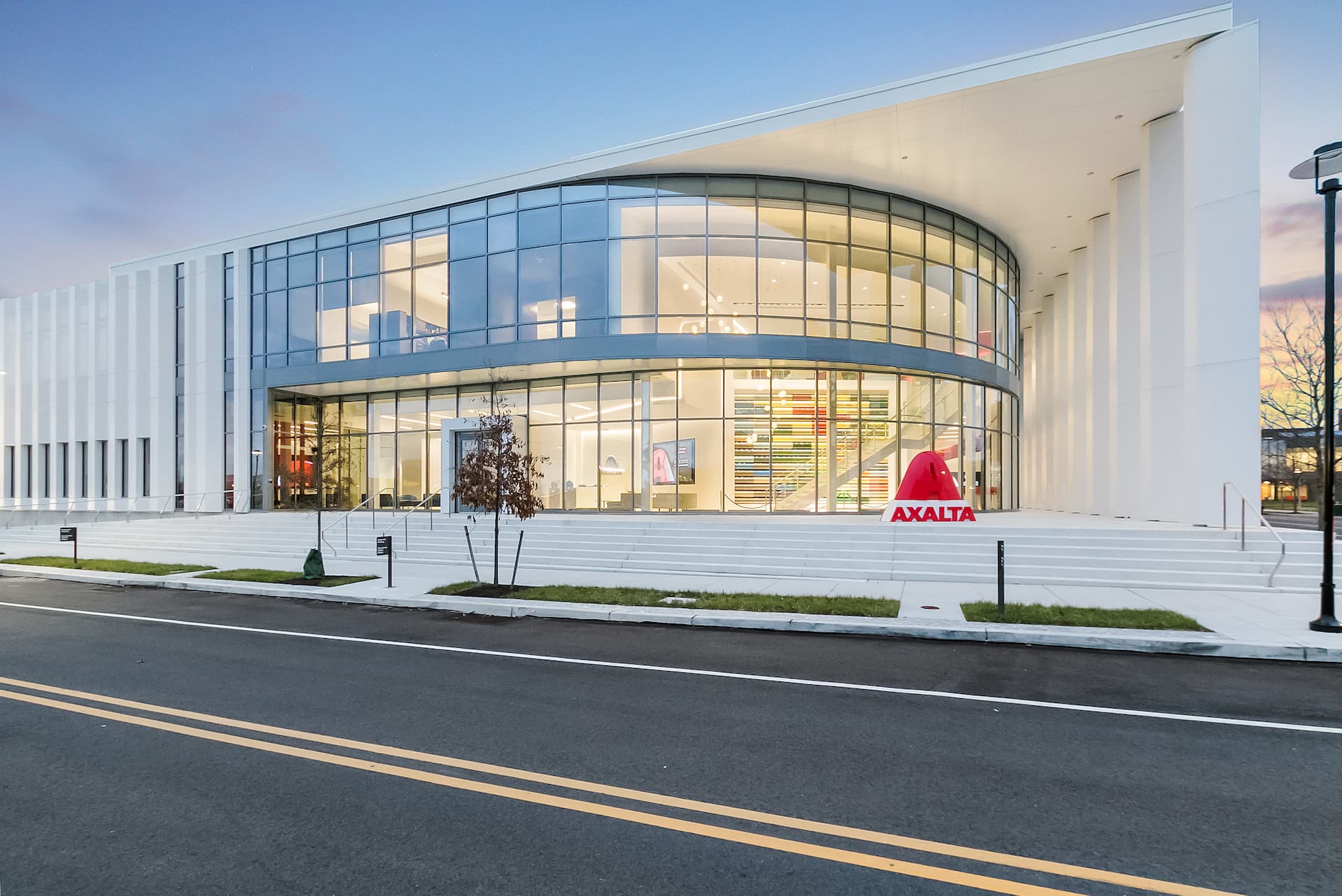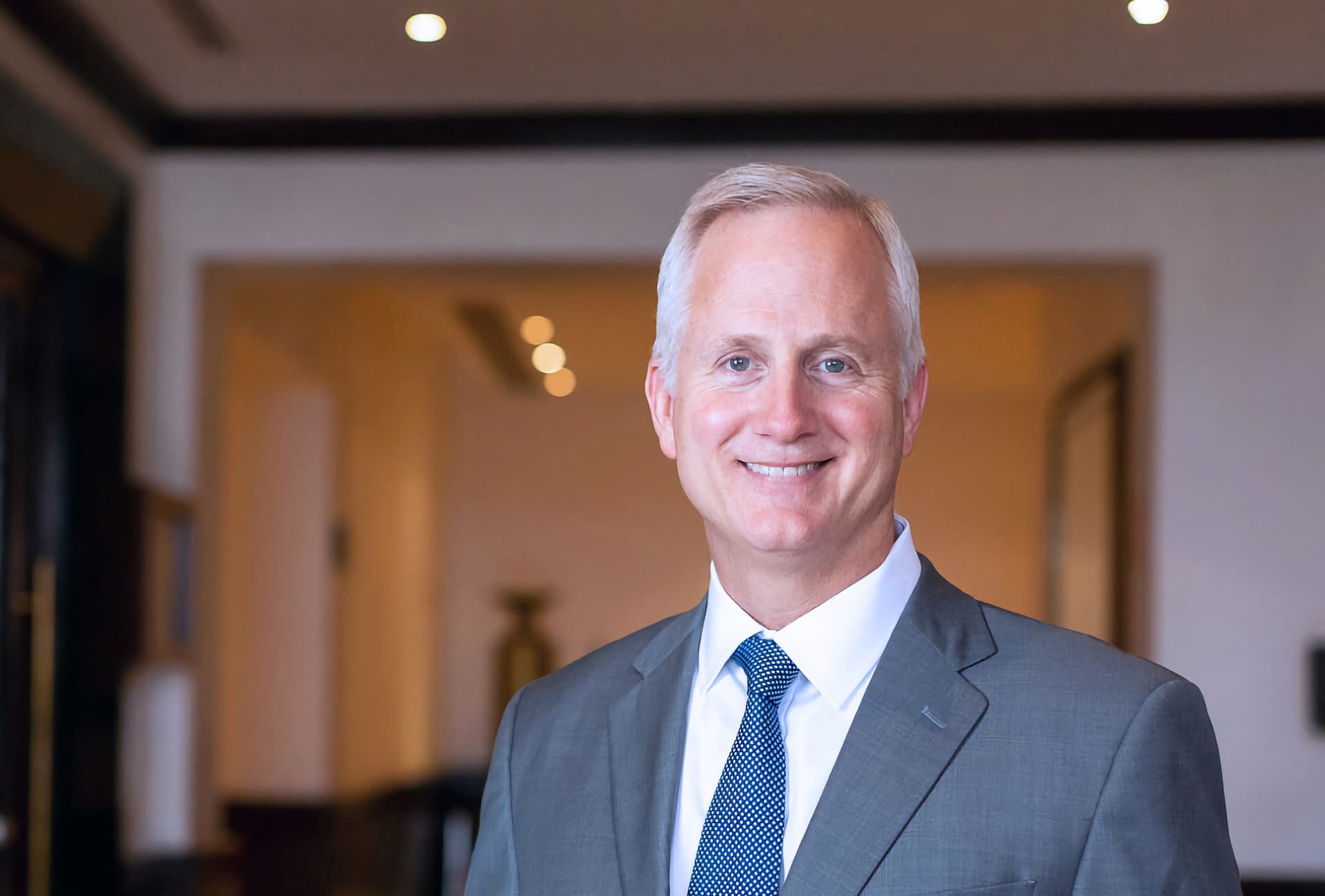Axalta is a global coatings company with more than 150 years of experience in the coatings industry. It claims more than 100,000 customers in 130 countries ranging from large original equipment manufacturers (OEMs) to small, family-owned businesses. Its roots go back to 1866 when Herberts, the original producer of Standox paint, was founded in Wuppertal, Germany. That was followed 16 years later by the establishment of Spies Hecker in the city of Cologne. In 1998, DuPont bought the Herberts paint business from Hoechst, making it one of the largest coatings manufacturers in the world. In 2013, DuPont sold DuPont Performance Coatings (DPC) to the Carlyle Group, which decided to rename it Axalta Coating Systems. Its current CEO is Robert Bryant, who succeeded original CEO Charlie Shaver in 2018. BodyShop News caught up with Bryant and discussed the situation around the world.
BODYSHOP NEWS: Can you share a brief history about your background?
ROBERT BRYANT: I joined Axalta in 2013 as Executive Vice President and Chief Financial Officer, before being appointed CEO and to the board of directors in 2018. Prior to joining Axalta, I served as Chief Financial Officer and Senior Vice President of Roll Global LLC. Before joining Roll Global in 2007, I was the Executive Vice President of Strategy, New Business Development, and Information Technology at Grupo Industrial Saltillo, S.A.B. de C.V. I have a BA in Economics from the University of Florida and an MBA from the Harvard Business School.
BSN: How has Axalta changed over the years and what is its current focus?
RB: Axalta has always been at the forefront of technology in the coatings industry. Our vision is to be the preferred coatings partner for customers seeking the most innovative products and services, delivered by the most talented team in the industry.
Axalta’s history can be traced back to the founding of Herberts – the original producer of one of our premium refinish brands, Standox. At the time, the business centred mostly around the refinish industry until the introduction of Imron polyurethane enamels in 1970, which expanded the business into the transportation industry. Then in the 1980s, we began to develop coating technologies for customers in new industries. Fast forward a few decades to 2013, and Axalta Coating Systems was established as a leading global coatings company.
Over the last five years, we’ve completed 23 acquisitions, which helped significantly grow our business into the nearly US$4 billion company that we are today. Looking forward, we are well positioned to drive profitable growth across all our lines of business. We’ll do this through a combination of innovation and new products, expanding our presence in emerging markets – particularly in China and other parts of Asia Pacific – deepening our partnerships with existing customers, and expanding share with underserved customers and markets.
While a lot has changed as our company and the industry have evolved over the last 150+ years since we were founded, what hasn’t changed is our commitment and focus on our customers and helping them to achieve success.
BSN: What do body shops need to be successful in the future?
RB: The refinish market is changing quickly and it’s critical for body shop owners to prepare for the impact these changes will have on their various customers. Each customer that a body shop serves – the driver, the claims management company, the insurance company, the vehicle manufacturer, and potentially the fleet/lease company – has unique requirements and needs. To be successful in the future, body shops will have to address the changing refinish landscape as seen through the eyes of each customer.
New technology is disrupting and transforming the automotive industry. Today, body shops face ongoing pressure on margins while at the same time they are under pressure to invest in new technology and training. On top of that, the collision market must deal with an aging workforce and a shortage of good, qualified technicians.
As technology advances, the required skillset, tools and training will also change. Many body shop technicians will have to be retrained to ensure they have the appropriate skillset to leverage advancing technologies to successfully repair damaged vehicles. Over the past few years, we’ve put additional focus on technical training for our customers. We expanded our training selection to include live virtual continuous learning courses for our refinish customers around the world. Body shop technicians who participate receive interactive instruction from our expert training team delivered via webcast.
Data is also important but isn’t readily available in the refinish industry. Data that is available is scattered across multiple sources and is collected manually. The current process is incredibly labour-intensive and doesn’t yield actionable insights. By the time the data is collected and analysed, it’s too late for the body shop to implement changes driven by the data that will impact the shop’s performance in that period. What’s critical to the future of the industry is real-time data.
Axalta is the only company in the industry to offer a real-time, fully automated performance management system. Our system utilises a proprietary data integration solution that automatically collects data from multiple sources in near-real time and then scrubs and analyses the data. Using this system, our customers have access to relevant performance data that helps them manage their business and continue to be successful.
BSN: Could you describe some of the current industry challenges and how Axalta is addressing them?
RB: The challenges we are experiencing currently are not unique to Axalta or our industry. Many global companies are continuing to mitigate the impact of things such as shortages in raw materials and semiconductor chips, increasing costs, and even unexpected inclement weather. Generally, the coatings industry has been effective over time in overcoming raw material cycles with appropriate price adjustments. Additionally, supply chain constraints due to severe weather, primarily in the US, strained material availability in North America while further fuelling raw material input inflation.
Also, we are still experiencing some of the residual effects of the global pandemic. Specifically, challenges in the global refinish industry include body shop consolidation, labour shortages, and the incredible speed of growth in emerging markets like China. As the leading global supplier to the refinish industry, we are uniquely positioned to meet the evolving needs of our customers despite these challenges. The breadth and innovation of our global product offerings, our extensive distribution network, and the infrastructure investments we’ve made over the last few years will help us to anticipate our customers’ needs, further strengthen these partnerships, and ultimately support the growth of our customers’ businesses and ours.
BSN: What are Axalta’s environmental initiatives?
RB: Sustainability at Axalta touches every aspect of our business, and we take a deliberate approach to helping our customers meet their sustainability goals. We view our efforts through an environmental, social, and governance (ESG) lens – from reducing the environmental impact of our operations and helping our customers reduce energy and emissions in their operations through the use of our products, to maintaining safe working conditions and providing a diverse and inclusive culture for our employees and supporting our local communities, along with acting with integrity and in compliance with all laws and regulations everywhere we work.
Axalta’s Refinish business is at the forefront of sustainable coating technologies. For example, our ultra-efficient, single-visit waterborne application system is the most advanced in the industry, and the products used are designed to meet stringent environmental standards while providing better coverage with fewer coats than conventional products, reducing the time it takes our customers to repair a vehicle. In North America, our suite of low-VOC undercoat and clearcoat products in the Cromax Premier LE 35XXS series allows body shops to use a wide range of application temperatures and reduce their activator inventory by nearly 50 per cent. This system provides a premium appearance while reducing complexity, waste and inventory, which improves efficiency in our customers’ operations.
In our own operations, we are committed to reducing energy, emissions, water and waste from our manufacturing processes globally, and we are making progress toward our environmental goals. In Australia, our regional head office – which opened in Sydney Business Park in 2019 and also features a distribution warehouse, service centre and customer training facility – was designed and constructed with sustainability in mind. The office’s windows are constructed with double-glazed smart glass to help reduce the amount of energy needed to heat and cool the building, and the building uses a 100-kilowatt rooftop solar system to provide renewable energy to the site.
Sustainability is a trend that is here to stay. As regions around the world set more stringent regulations and emissions reduction targets, customers will continue to demand more sustainable coating solutions that deliver exceptional quality, coverage, and durability without adding cost.
BSN: What are your hopes for the industry?
RB: I think we can all agree that the unprecedented times we’ve experienced over the last 18 months have challenged us in ways we could never have imagined. But opportunities always arise from challenges, and my hope is we lean into the learnings from the past year to build a better tomorrow. As global markets continue to recover from the impacts of the pandemic, I believe technological innovations will accelerate – even faster than pre-pandemic environments – forcing widespread adoption of advanced technologies, a focus on different skillsets in the industry, and an agile mindset to remain competitive and be the partner of choice for global refinishers.






